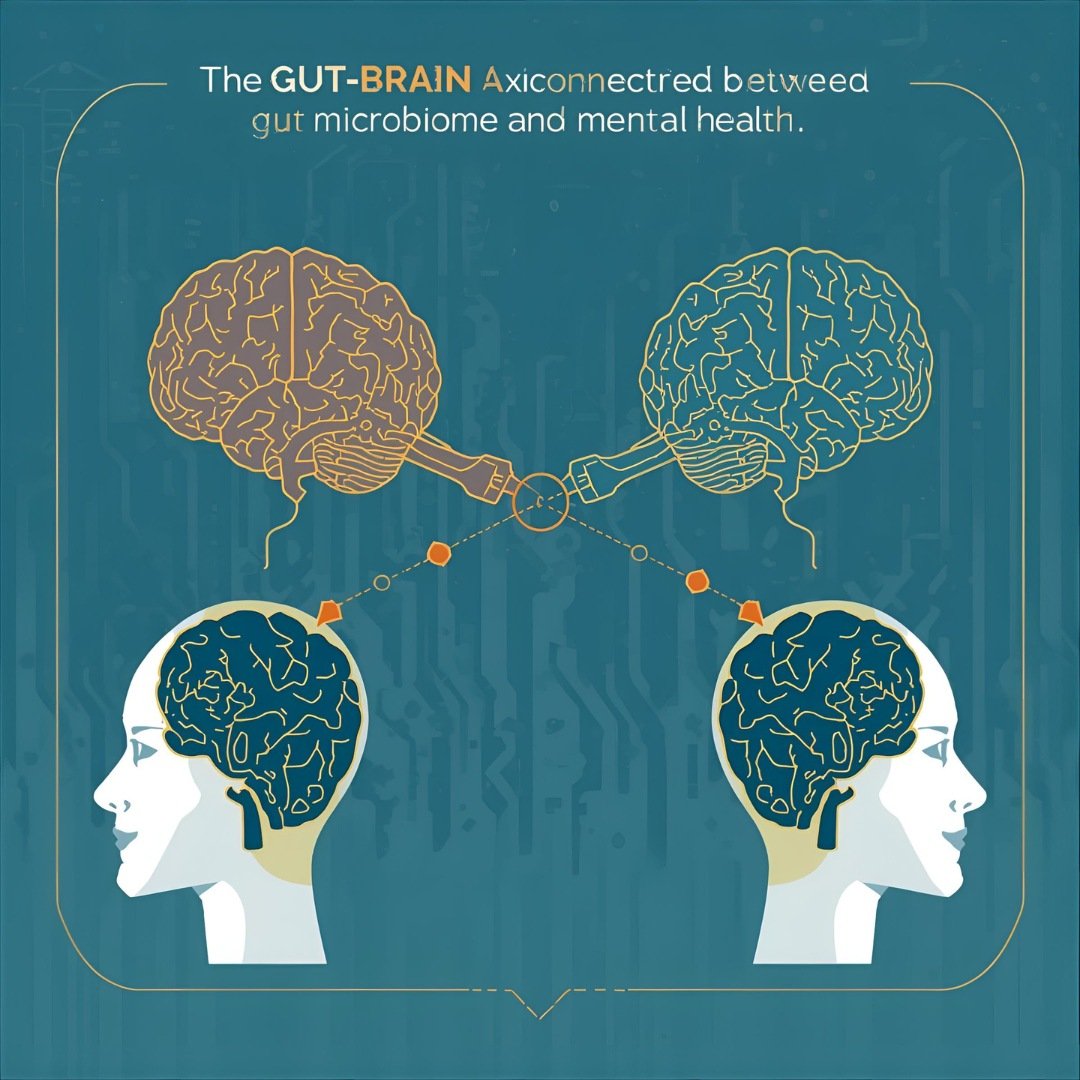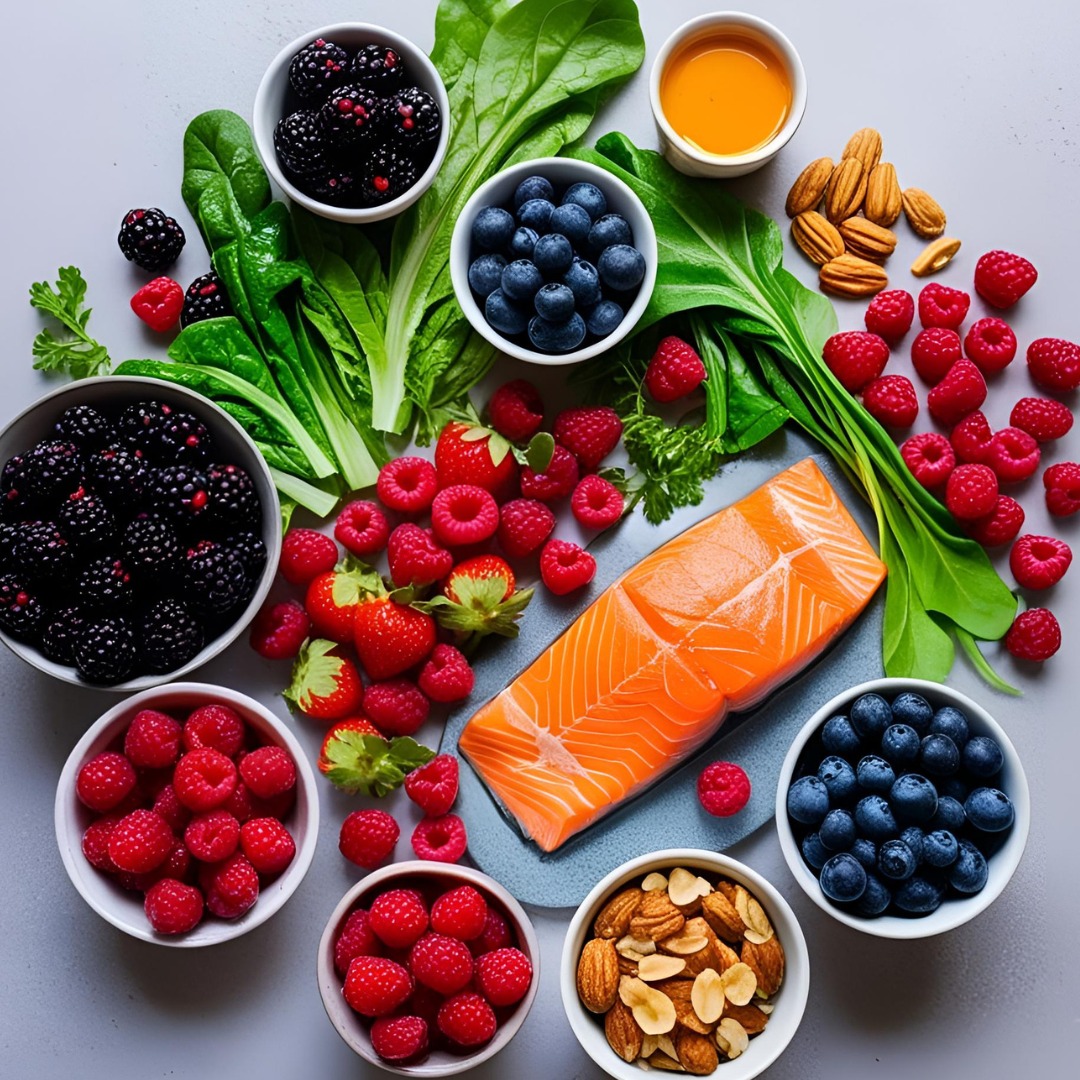Disclosure:
Thank you for reading this post, don't forget to subscribe!
Some of the links on this website are affiliate links. This means that if you click on the link and make a purchase, we may receive a small commission at no extra cost to you. Your support helps us keep the site running.Learn more on my Privacy Policy and Affiliate Disclosure page. Thank you for your support!
Welcome, friend. Think for a moment about the most fundamental elements of a healthy, energized life. You likely thought of sleep, exercise, and a balanced diet—all true! But what if we told you that the key to unlocking peak energy, resilient immunity, and even a calmer mood lies not in your brain or your muscles, but in your gut?
It’s an internal world teeming with life, a dynamic ecosystem known as your microbiome. Far from being just a waste disposal system, your digestive tract is a vibrant, interconnected hub that influences nearly every aspect of your physical and mental well-being. Modern science is constantly reaffirming the wisdom that ancient wellness traditions have hinted at for centuries: All health begins in the gut.
In this in-depth guide, we’ll decode this fascinating system, revealing exactly how your gut shapes your day-to-day life and giving you practical, uplifting ways to nourish your inner ecosystem for transformative results.
read next:
The Hidden World Within: What is the Microbiome?
The human body is home to trillions of microorganisms—bacteria, fungi, and viruses—collectively known as the microbiome. The vast majority of these live in your large intestine, creating a unique biological fingerprint that is more distinct than your actual DNA. It’s an internal rainforest where a diverse population is a sign of a healthy, robust environment.
Friendly Flora: Bacteria’s Surprising Role
These microorganisms aren’t invaders; they are crucial partners in maintaining life. They help break down food components your body can’t digest on its own, train your immune system, and even produce vital compounds.
🧠 Featured Snippet Block: The gut microbiome is a vast ecosystem of trillions of microorganisms residing primarily in the large intestine. This “second brain” is vital for overall health, influencing digestion, nutrient absorption, immunity, mood, and energy levels by producing essential short-chain fatty acids and neurotransmitters.
Key Functions: Digestion, Vitamin Production, and Defense
Your gut bacteria are constantly working, fulfilling essential roles:
- Aid Digestion: They ferment undigested food components, producing beneficial short-chain fatty acids (SCFAs) like butyrate, which is the primary fuel source for your colon cells and is critical for reducing inflammation.
- Produce Vitamins: They synthesize essential nutrients like Vitamin K and B vitamins (B12, Folate).
- Immune System Training: They help distinguish between friendly substances and pathogens, constantly tuning your body’s defense mechanisms.
The Gut-Brain Axis: A Two-Way Communication Superhighway

Have you ever felt “butterflies” in your stomach before a big presentation or a knot of nausea during high stress? That’s not just an expression—it’s the physical manifestation of the Gut-Brain Axis (GBA) at work. This is a complex, bidirectional communication network that connects your emotional and cognitive centers in the brain with your gut function.
How Gut Bacteria Influence Neurotransmitters
The GBA is a chemical and physical link that uses the vagus nerve and circulating hormones to talk back and forth. Remarkably, your gut produces a significant amount of the body’s neurotransmitters—the chemical messengers that regulate mood.
For example, roughly 90% of the body’s serotonin—often called the “happy chemical”—is produced in the gut. When your gut flora is stressed or imbalanced (a condition called dysbiosis), this production can be impaired, directly impacting your emotional state and contributing to feelings of anxiety or low mood.
The Link to Mood and Mental Clarity
Emerging research suggests that a diverse, thriving microbiome is a crucial component of mental wellness. The SCFAs produced by your gut bugs not only fuel your colon but also cross the blood-brain barrier to directly influence brain health, potentially improving memory and focus. By nourishing your gut, you are essentially strengthening your brain’s resilience.
Managing Stress for a Healthier Gut
The GBA is a two-way street. Chronic stress floods your body with cortisol, which can disrupt the balance of your gut bacteria, leading to inflammation and permeability. Finding effective stress management techniques—whether through mindfulness, deep breathing, or simple walks—is not just good for your mind; it’s a profound act of kindness for your gut. To explore actionable strategies for managing stress, you might find our post on 5-Minute Morning Habits That Can Shift Your Entire Day helpful.
Fueling Your Defenses: Gut Health and Immunity
If your immune system is your body’s shield, then your gut is its headquarters. A strong, balanced microbiome is your first line of defense against illness.
The 70% Connection: Why the Gut Houses Most of Your Immune Cells
A staggering 70 to 80 percent of your body’s immune cells are located in your gut, surrounding a complex layer of tissue called the gut-associated lymphoid tissue (GALT). A healthy gut lining acts as a physical barrier, meticulously controlling what is absorbed into the bloodstream (nutrients) and what is blocked (toxins, undigested food particles, and pathogens).
Leaky Gut Syndrome: Understanding Permeability
When the delicate lining of the gut wall becomes compromised, or overly permeable, it can allow substances to “leak” into the bloodstream, triggering an immune response. This condition, often termed “leaky gut” (or increased intestinal permeability), can lead to chronic, low-grade inflammation throughout the body, manifesting as fatigue, joint pain, and other systemic issues.
Reducing Chronic Inflammation
Inflammation is the root cause of many chronic diseases. The key to reducing it lies in balancing your gut flora. Healthy, diverse bacteria produce anti-inflammatory compounds (like those SCFAs we mentioned!), while an overgrowth of harmful bacteria tends to produce pro-inflammatory compounds. A diet rich in fiber and whole foods is the best defense against this inflammatory cycle.
Signs of an Imbalanced Gut (Dysbiosis)
Dysbiosis occurs when the balance of “good” versus “bad” bacteria tips in the wrong direction. The signs are not always the obvious digestive discomfort you might expect.
Beyond Digestive Distress: Fatigue, Brain Fog, and Skin Issues
While issues like bloating, gas, heartburn, and irregular bowel movements are clear indicators, an imbalanced gut can manifest in surprising ways:
- Chronic Fatigue: A compromised gut can reduce nutrient absorption and fuel systemic inflammation, leading to persistent tiredness.
- Brain Fog: The inflammation triggered by a struggling gut can cross the blood-brain barrier, reducing clarity and focus.
- Skin Issues: Conditions like eczema, acne, and psoriasis are often linked to a deeper imbalance in the gut (the “gut-skin axis”).
- Food Cravings: Certain types of gut bacteria can actually manipulate your appetite, causing strong cravings for sugar or processed foods, perpetuating the imbalance.
The Role of Diet, Stress, and Medications
The balance of your microbiome is incredibly sensitive to modern life. High-sugar, low-fiber diets, chronic stress, lack of quality sleep, and the use of certain medications (especially antibiotics) can all rapidly deplete beneficial bacteria and allow harmful strains to flourish. We must be vigilant stewards of this internal garden.
Practical Steps to Cultivate a Thriving Microbiome

The great news is that your microbiome is incredibly resilient and responsive. Small, consistent changes can lead to dramatic improvements in a surprisingly short time.
Prebiotics, Probiotics, and the Whole Food Difference
Think of it this way: Prebiotics are the food for your good bacteria, and Probiotics are the bacteria themselves.
- Prebiotics: These are types of dietary fiber that pass undigested through the small intestine and are fermented by the microflora in the large intestine. Good sources include onions, garlic, bananas, oats, apples, and chicory root.
- Probiotics: These are live, beneficial bacteria found in supplements or fermented foods. While supplements can be useful, a diverse diet is the ideal way to introduce new strains.
The Power of Fermented Foods
Fermented foods are natural probiotic powerhouses, created through a process where bacteria and yeast convert starches and sugars into acids.
- Yogurt/Kefir: Choose varieties with “live and active cultures” and minimal added sugar.
- Sauerkraut/Kimchi: Naturally fermented vegetables (not vinegar-brined) are excellent sources of beneficial bacteria.
- Kombucha: A fermented tea that provides a variety of healthy microbes.
Lifestyle Adjustments: Sleep and Movement
Remember, the gut doesn’t exist in isolation. Prioritizing your overall wellness is prioritizing your gut:
- Sleep: Poor sleep increases inflammation and impacts the gut lining. Aim for 7-9 hours of quality rest.
- Movement: Regular, moderate exercise promotes healthy gut motility, reducing the time toxins linger in the system, as noted in studies like those published by the National Institutes of Health (NIH).
Small Shifts, Big Results: Starting Your Gut Health Journey
Starting your gut health journey doesn’t require a radical overhaul—it requires small, meaningful steps, rooted in consistency.
- Add Fiber: Slowly increase your intake of diverse plant foods (vegetables, fruits, whole grains).
- Hydrate: Water is essential for motility and for the bacteria themselves to flourish.
- Chew Your Food: Digestion starts in the mouth. Chewing thoroughly reduces the load on your digestive system.
The health of your microbiome is a testament to the fact that you are an ecosystem, not just an individual. By nurturing the life within you, you are strengthening your mind, boosting your energy, and building an unshakeable foundation for long-term health.
To dive deeper into the science behind this connection, the Harvard T.H. Chan School of Public Health offers excellent resources on the Gut-Brain connection and diet.
recent post:
❓ Frequently Asked Questions (H3)
How long does it take to improve gut health? Significant changes in the gut microbiome can occur in as little as 2-4 weeks after a consistent change in diet and lifestyle. However, establishing a truly diverse and stable microbiome is a long-term wellness project.
Should I take a daily probiotic? While supplements can be beneficial, especially after a course of antibiotics, many experts suggest focusing on a varied diet rich in fermented foods and prebiotics first. If you choose a supplement, look for one with multiple, well-researched strains and a high CFU count.
What foods are highest in prebiotics? Excellent prebiotic sources include garlic, onions, leeks, asparagus, bananas (slightly green), barley, oats, and apples.
Conclusion
The journey to better health begins with paying attention to the wisdom of your body, and right now, that wisdom is whispering from your gut. By making intentional choices—choosing fiber, embracing fermented foods, and managing your stress—you are not just treating symptoms; you are laying a foundation for robust energy, a calmer mind, and an immune system ready for anything.
Take the time to listen to your inner world, feed your friendly flora, and watch as your entire life begins to shift.
What’s the one small gut-healthy change you’re committing to this week? Share your intention in the comments below! Explore more wellness tips and guides on our blog to keep your entire system balanced.
More about:
HEALTH / WELLNESS / FITNESS / NUTRITION
Share This Post














